Guest blogger: Nataša Djukanović
I feel offended when someone says something bad about Yugoslavia. I feel like we, the people who were born and lived in Yugoslavia are a special endangered species going to be extinguished in the next couple of years. So, don’t offend us. Don’t throw a stone on our already ruined home.
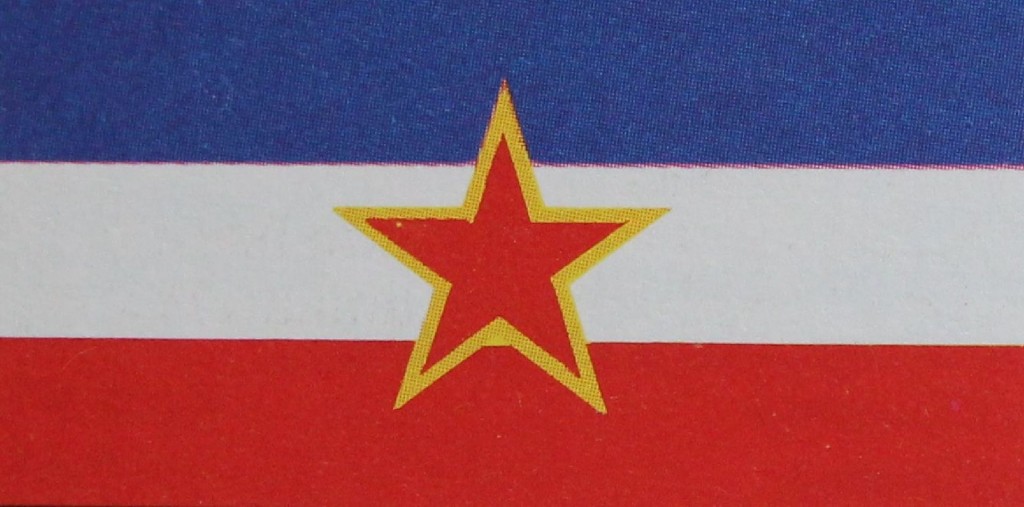 I try so hard to transfer my knowledge, which is much more of an emotion, about Yugoslavia to my kids, to younger people around me, so that the word and the memory do not get lost. And I know that the feeling, the panic, and that sorrow about the past times and a country which doesn’t exist anymore, is like being sick, and the disease is called Yugo-nostalgia.
I try so hard to transfer my knowledge, which is much more of an emotion, about Yugoslavia to my kids, to younger people around me, so that the word and the memory do not get lost. And I know that the feeling, the panic, and that sorrow about the past times and a country which doesn’t exist anymore, is like being sick, and the disease is called Yugo-nostalgia.
When I was in the third grade of elementary school we were to swear in by the Tito’s vow, which would make us Tito’s pioneers. When I think about that today it is all about on how to live with respect to the people around you, everything everybody should be teaching their kids. How do we call that today? How do we teach our kids respect to the elder people? And I remember how strongly everybody promoted fraternity, unity and equality. It was not just about the words we like to use today like the famous and worn out word “democracy”. It was a real feeling. I didn’t know if some of my friends were Muslims or Catholics and I did not care either. I still don’t care. And I am sure that this feeling was implanted in me by the Yugoslav values. And how funny and sad it is that the country’s breakdown commenced by national inequalities.
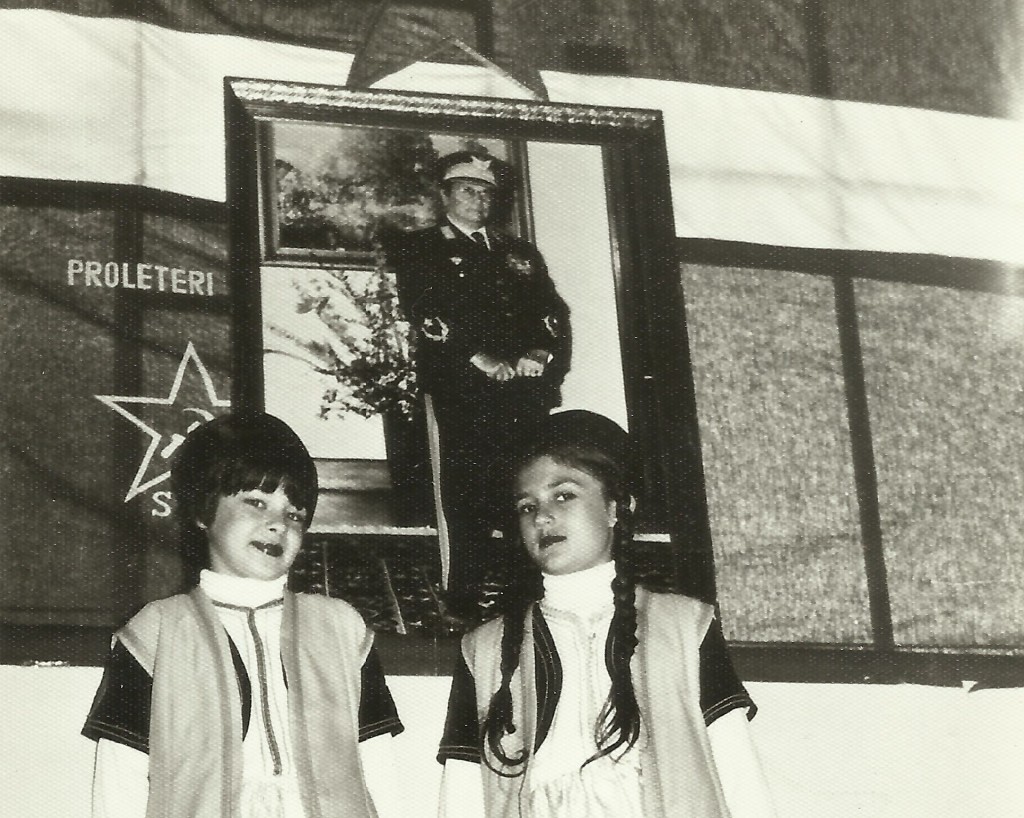 I am sure all the wars happened because of personal interest of a couple of people and some people who were not part of Yugoslavia. We, who were raised in real Yugoslavia didn’t think about different nationalities. The breakup of Yugoslavia happened, I would say, to the surprise of all of us, we knew something was happening but we never ever dreamed it would happen. Not even when we were standing in front of the town hall to change the leading party in 1988.
I am sure all the wars happened because of personal interest of a couple of people and some people who were not part of Yugoslavia. We, who were raised in real Yugoslavia didn’t think about different nationalities. The breakup of Yugoslavia happened, I would say, to the surprise of all of us, we knew something was happening but we never ever dreamed it would happen. Not even when we were standing in front of the town hall to change the leading party in 1988.
My revelation and ability to go back in time, right directly to that year 1988 happened when I drove from Belgrade to Podgorica, a couple of weeks ago, and I was somewhere close to the border when I heard this song. The song written and played by one of the most renown Yugoslav songwriters, which speaks about the decomposition of Yugoslavia, and I haven’t heard it for more than 20 years. The song was written in 1988. We didn’t know and we didn’t understand that it was the prophecy of what would happen in the next three years. The name of the song is “Requiem”, a dedication to the time when we in Yugoslavia were all equal. The lyrics said:
“Ostaće u knjigama i priča o nama:
Balkan krajem jednog veka.
Svako pleme crta granicu.
Svi bi hteli svoju stranicu…”
(The story about us will remain written in the books, about the Balkans at the end of a century, every tribe draws its own border, everybody would like to have his own page...)
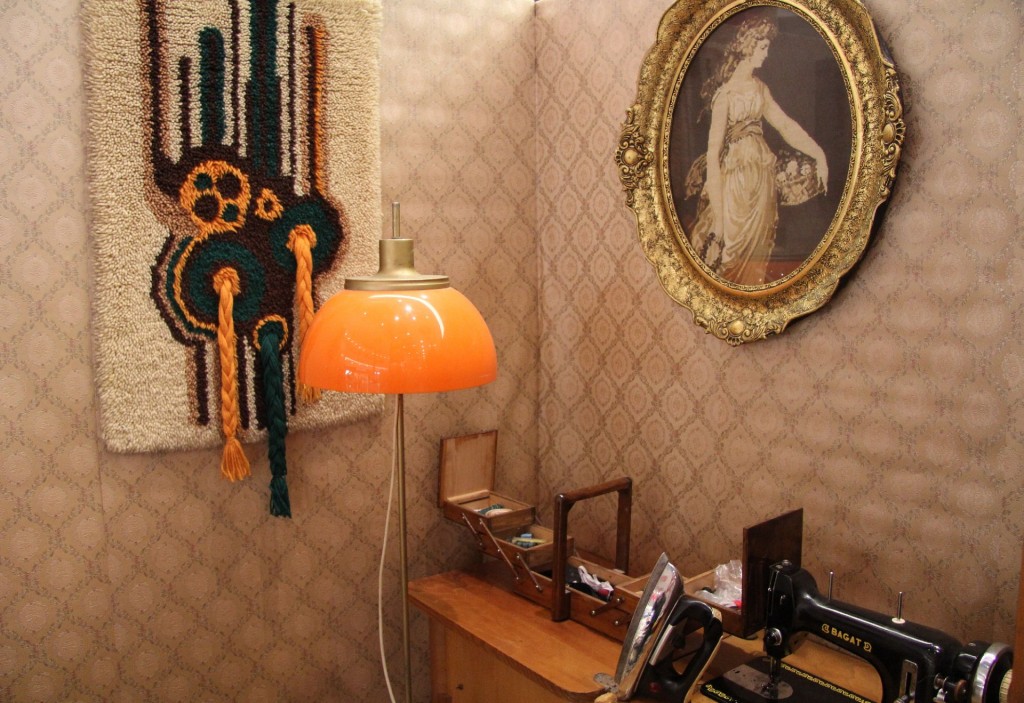 The song is dedicated to a better time in Yugoslav history back in the seventies, when the same singer sang “Racunajte na nas!” – Count on us! The singer speaks directly to the commander (Tito) expressing his regret about the good old times when we were proud people of Yugoslavia. And he said it all in 1988. There were more prophecies. In 1990, the famous Sarajevo TV Show “Lista nadrealista” had a New Year’s Eve sketch when they played a typical Sarajevo family in which everybody there had different nationalities, and they all had different passports and had to cross the border in the middle of the city, the UN forces establishing peace. We laughed. We said how true it could be. But we never believed it. And then everything broke apart. Just a couple of years later.
The song is dedicated to a better time in Yugoslav history back in the seventies, when the same singer sang “Racunajte na nas!” – Count on us! The singer speaks directly to the commander (Tito) expressing his regret about the good old times when we were proud people of Yugoslavia. And he said it all in 1988. There were more prophecies. In 1990, the famous Sarajevo TV Show “Lista nadrealista” had a New Year’s Eve sketch when they played a typical Sarajevo family in which everybody there had different nationalities, and they all had different passports and had to cross the border in the middle of the city, the UN forces establishing peace. We laughed. We said how true it could be. But we never believed it. And then everything broke apart. Just a couple of years later.
There were no differences if you were a woman either. Women worked, and succeeded to be in higher positions, and raised kids, man were involved in their families and raising kids. Education and health care were free.
So, the feeling, the disease of Yugo-nostalgia will never go away. It hurts when younger people make fun of us when we say it was the best place to live in, and raise kids, we didn’t lock the doors, there was no crime, we traveled all around the world and needed no visa, where we all had everything we needed to have. You will say that I idealize that time and that country. You will say that there were so many wrong and bad things too. What happened with opponents, with corruption, with the national debt… But aren’t there so many of these wrong things even today in
every country, here too, and there are no good things from that era to make the balance.
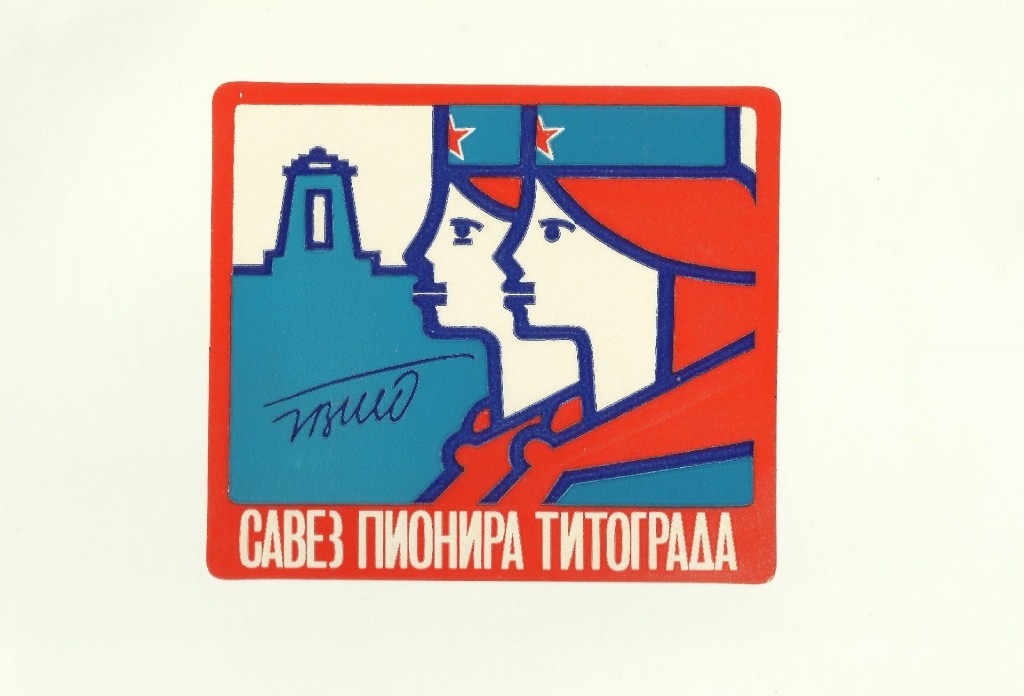 I still feel tears swelling when I hear the Yugoslav national anthem. I think I will never feel the Montenegrin anthem the same way. It seems that I am still a Yugoslav.
I still feel tears swelling when I hear the Yugoslav national anthem. I think I will never feel the Montenegrin anthem the same way. It seems that I am still a Yugoslav.
I’ll end this mourning with the refrain of the song:
“And where are we, the naive ones,
who were standing by the “hej Sloveni” (national anthem)
like we were invented throught that story
and cheated..”
(A gde smo mi, naivni, što smo se dizali na “Hej Sloveni”? Kao da smo uz tu priču izmišljeni… i prevareni…”)
https://www.youtube.com/watch?v=1_5iO8cakYg&noredirect=1
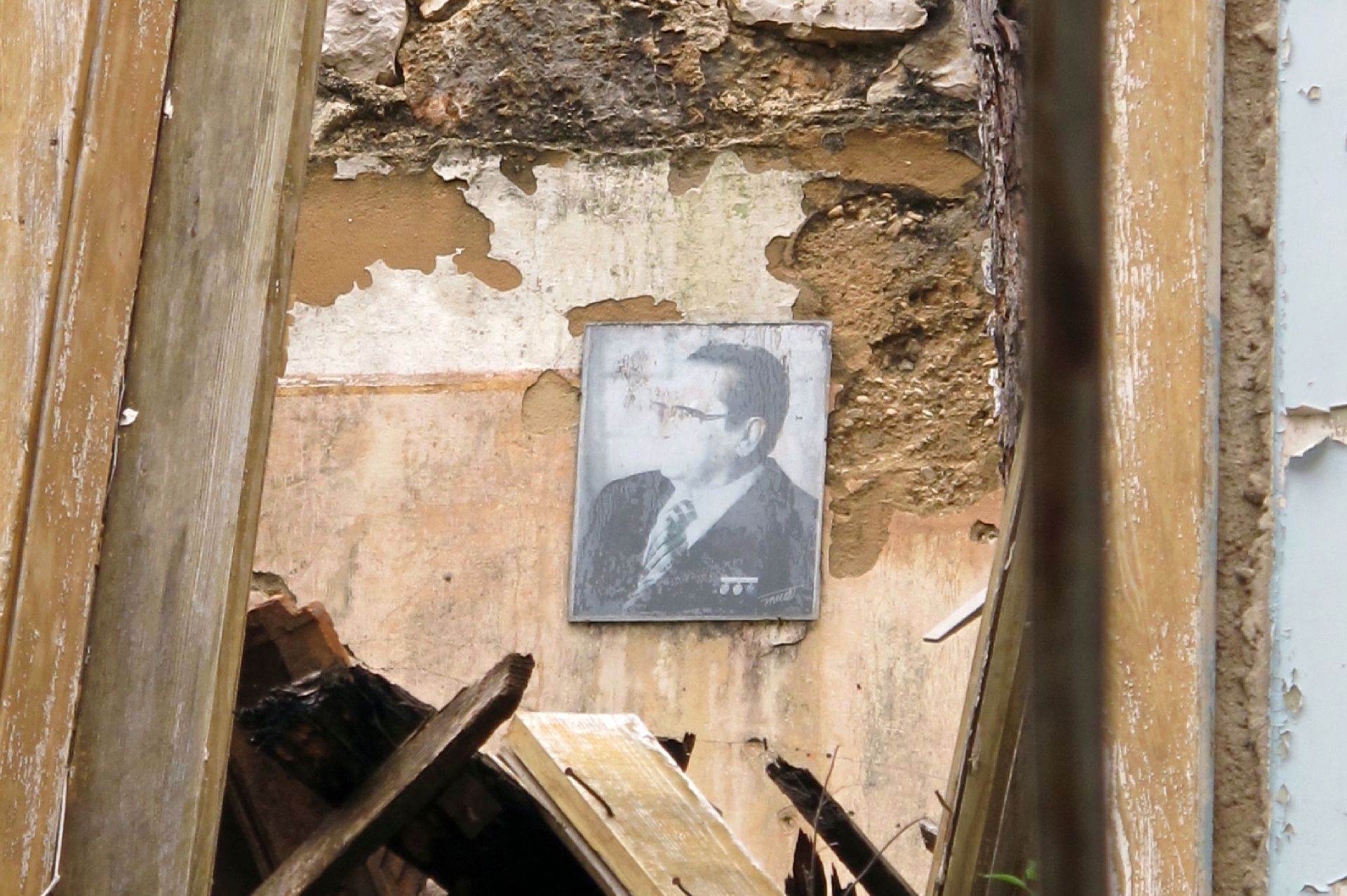
“I am sure all the wars happened because of personal interest of a couple of people and some people who were not part of Yugoslavia.”
What a pathetic, delusional narrative the Communist-raised elites have managed to shove down your throat. To say that Yugoslavia was anything better than a classic Stalinist dictatorship is putting lipstick on a pig. The disintegration of Yugoslavia necessarily resulted in one of the most bloody post WWII conflicts PRECISELY because of the Communist establishment – think about the decades of their suppression of free speech, institutional autonomy, individual human rights, democracy, the electoral process, multipartism, ideological diversity… it was the Communist rule that created, behind a facade of relatively high GDP per capita and good diplomacy, a dreadful anti-democratic shithouse that could only solve its internal problems through war and slaughter.
And, from a perspective of a 22 year old who may well be your kid’s generation, let me tell you something: the complacency, passivity and brainwashed cowardice that you and your peers showed in your youth makes me sick. You sat silent through the 70s and 80s, so that the 90s could happen. And the pseudo-sovereign, pre-democratic state of Montenegro is exclusively your fault. So, while (the small minority within) my generation tries to correct your mistakes, the least you can do is to shut the F up.
Fedja, you are my son’s generation (nazdravlje njemu), and I would be very upset if he would say to your mother to shut the F up. So, first learn to behave.
But luckily, I’m not your son, so if you’ve got any reply to my argument, have the decency not to raise the “age card”. Your age doesn’t entitle your opinion (which boils down to a petty Yugo-nostalgic, delusional narrative) to any respect. But again, I have little ambition to engage you in a debate; I’d rather appreciate it if you just shut your offensive bullcrap.
Kind regards.
It’s not about the age. It’s about how superficial and spoilt you are. It’s about your anger management. Who hurt you so bad that you offend somebody you never met, who writes about nostalgia?! And read the blogpost first!
You know, there are many bloggers out there lamenting the fall of the Soviet Union, and that sort of nostalgia is deeply offensive to generations whose aimless wanderings Joseph Brodsky articulated so well in his essays. In the same vein, lamenting an oppressive, undemocratic Communist pit that Yugoslavia was hurts the feelings of a generation whose childhood was marked by the rotten, warlike climax of the Yugoslav shitshow. The wars of Yugoslav succession were primarily caused by the political system which preceded them – the SFRY which you so complacently glorify as a belle epoche, and which my generation will hopefully erase from fond memory and mark as a dark age of Communist oppression.
That’d be all on my part, I’m not interested in trading insults.
Kind regards,
FP
My wife’s parents are from Serbia and although she grew up here, in W Europe (or maybe because of it) she can still feel not nostalgia but a kind of sadness that it all ended and that all these people she considered countrymen are now split up into different countries and emphasize their differences. Living in W Europe it’s so clear that the similarities are so much greater.
If Yugoslavia had no been poisoned by communism and the political poison it generates maybe the wars could have been avoided.